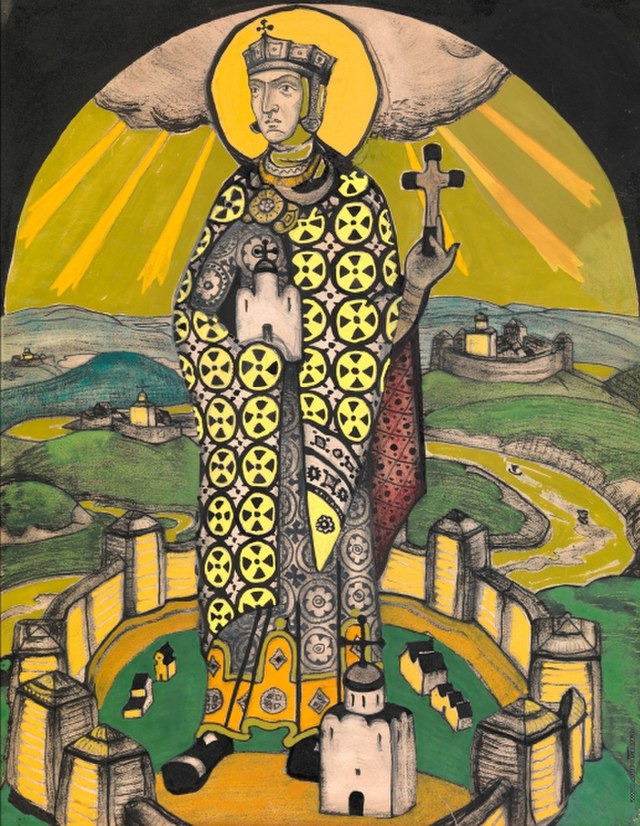Olga of Kiev
The assassin who became a saint

Saint Olga of Kiev by Nicholas Roerich (1915) - Wikimedia
Olga (or Helga, in Old Norse) of Kyiv (890–969) was a Grand Princess of the Kievan Rus’ of Varangian (Norse) origin. Renowned for her beauty and intelligence, she caught the attention of Prince Igor of Novgorod and Kyiv, who took her as his wife. Following Igor’s assassination in 945, Olga assumed leadership of the Kievan Rus’ as regent, as their son Svyatoslav was only three years old.
The Drevlians, a Slavic tribe responsible for Igor’s death, sought to consolidate power by proposing that Olga marry their prince, Mal, thus securing their influence over Kyiv’s vulnerable throne. Olga, determined to retain control for herself and her son, rejected this plan. Instead, she lured 20 Drevlian emissaries into a trap and had them executed.
Feigning acceptance of Prince Mal’s proposal, Olga demanded that his wisest men escort her to his village. Upon their arrival, Olga welcomed them into a grand hall with honors. Once they were inside, she ordered the doors sealed and the building set ablaze, killing the Drevlian envoys.
Olga then mustered an army to defeat the remaining Drevlians. Employing a cunning strategy, she demanded three pigeons from each household in the besieged Drevlian settlement. To these birds, her soldiers attached sulfur, which they ignited before releasing the pigeons back to their nests. The resulting fires consumed the Drevlian homes, annihilating the population. After this event, the Drevlians disappeared entirely from Russian chronicles.
In 957, during a journey to Constantinople, Olga requested baptism and converted to Christianity, taking the name Helena. Upon returning to Kyiv, she fervently worked to spread Christianity, as recorded in the Primary Chronicle: "She destroyed the altars where sacrifices were made to the devil and devoted herself to charitable works for the most impoverished of her people."
However, her efforts were met with resistance in a still-pagan Rus’. Olga remained the sole Christian among her subjects. Despite her earlier acts of brutality, she was later canonized as a saint due to her pivotal role in introducing Christianity to the region.
Ettore Cinnella, Storia e leggenda della Rus' di Kiev, Della Porta Editori, 2024
Site: Antonio Borrelli, Sant'Olga di Kiev, on Saints and Blesseds, consulted January 15, 2025.
2025-06-17
Salvatore Ciccarello
